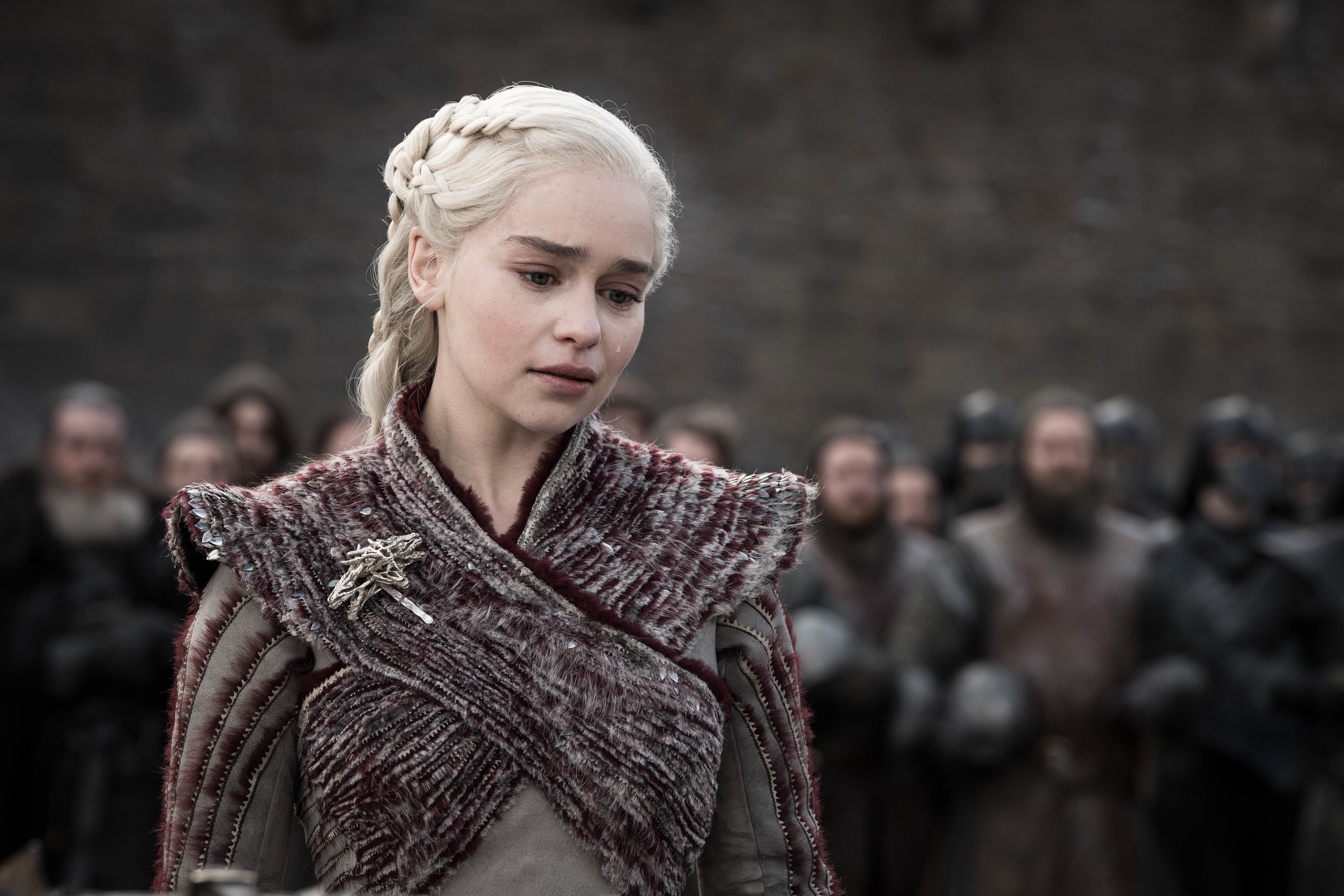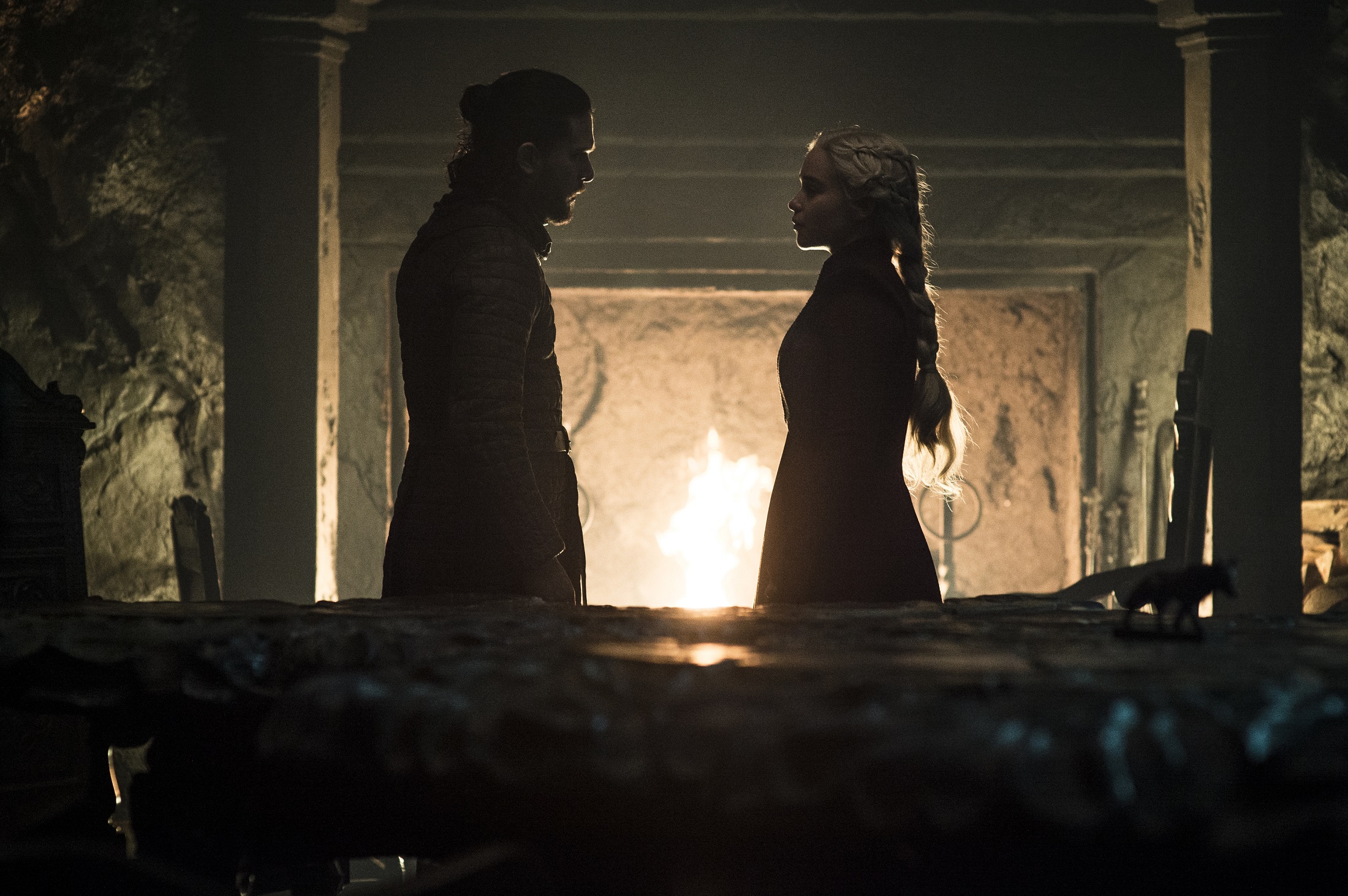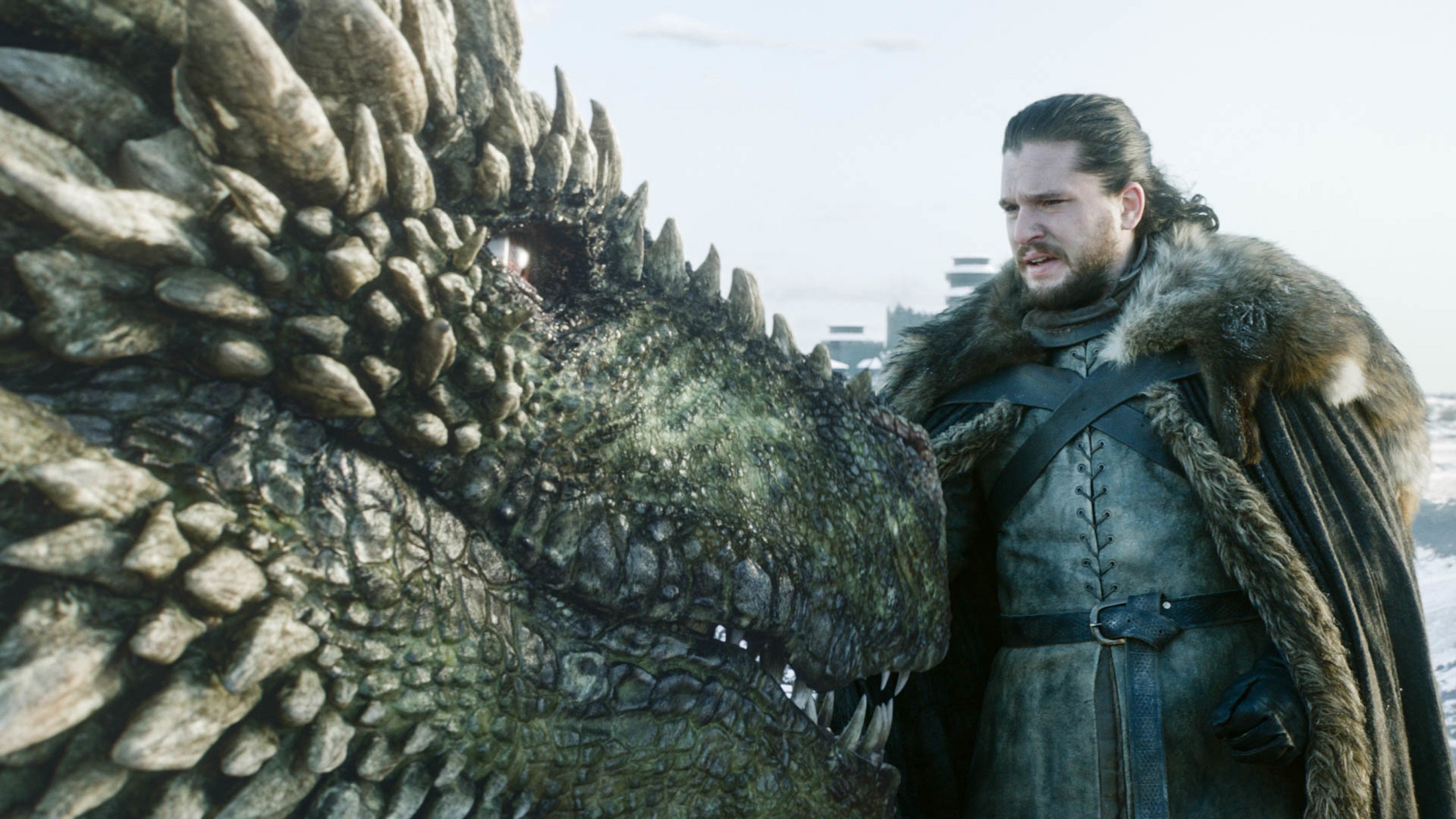Emilia Clarke hasn’t been shy about her reactions to the end of Game of Thrones, particularly as regards her character of Daenerys Targaryen, who one could say went a bit off the deep end there at the end. Still, before the following interview we’re bringing you today, the actress has never really addressed what her reactions were beyond that; or, more specifically, what did she think about the fan reactions?
On this week’s Stellar Magazine, via the Daily Mail, Emilia Clarke speaks to the fan response at the final episodes of Game of Thrones, which was divisive to say the least:
“I was too busy focusing on my own reactions to really pay too much attention, if any at all,” the actress says of her initial feelings. Indeed, Clarke has been frank in the past about how reading the final scripts left her speechless and wandering London for hours, due to Daenerys’s turn and death. With time, however, her feelings appeared to evolve: “The only thing I felt truthfully sad about was that [showrunners] David and Dan are my really good friends, and so it’s for them that I feel heartbreak, because it’s theirs.”
On a personal note: when I first read Emilia’s reaction to the ending, I felt for her; she is obviously deeply connected to Daenerys, and her end wasn’t only tragic but shocking–too shocking, some would argue (and some do, or else the ending wouldn’t be so divisive.) Nevertheless, I’m glad that Clarke has also taken note of the vitriolic reaction, exhibited by some watchers towards the showrunners, and decided to comment on it and commiserate with David and Dan, as some of those same fans were pitting Emilia Clarke against them in some imagined feud, if you can believe that!
Then again, if I know the ways of online fandom–and I think I do–this sadly won’t dissuade any believers, and so the battle between actor and showrunners will continue unabated in their minds. C’est la vie. Or, well, c’est le fandom.
In other news, speaking to Metro at the Q Awards, Isaac Hempstead Wright, who you may know better as Bran Stark (or perhaps as King Bran the Broken, First of His Name, King of the Andals and the First Men, Lord of the Six Kingdoms, and Protector of the Realm,) was asked about what he would think if, despite what he was told, George R.R. Martin ended up enthroning someone else at the end of his book series:
“I will be a bit gutted I think,” Isaac confesses. Then again, there’s a silver lining: since “the books and the show were able to evolve as their own thing,” as he puts it, “George has no obligations to end it in any of the same ways we did,” so you could “get two alternative endings to Game of Thrones.” Isaac deems this as “quite cool.” As for who else he can envision in the throne, it appears the wolves stick together still: “It would have to be another Stark I think, Sansa or someone.” The pack survives, indeed.
Finally, Kim Renfro at Insider was lucky enough to read the entire final season’s scripts now deposited at the Writers Guild Foundation Shavelson-Webb Library in L.A., where she learned about some of the scenes or lines that didn’t make the cut, such as slightly expanded roles for Harry Strickland and Alys Karstark, a clearer through line of the isolation that lead Dany to her final decisions, and characters explictly discussing certain issues that many viewers felt should have been addressed on-screen.
For example, Missandei and Grey Worm originally had a role in the Winterfell hall feast after the battle, and their departure in order to have some alone-time as lovers was what originally prompted Dany’s feelings of isolation:
Dany is happy for her friend. But she’s also aware that everyone seems to be having fun except for her. She’s lonely and Varys clocks her loneliness…
The scene continues as aired, with Tormund celebrating Jon instead of her, but Dany’s increasing isolation was hammered home by literally being left alone without her only two long-time friends. In general, according to Renfro, “it’s much easier to track her descent into bitter loneliness and resolution against the rest of Westeros.”
Another bone of contention has been how certain noteworthy events went by unaddressed, such as Jon riding a dragon in the season premiere despite not being a known Targaryen. Though it’s not quite an uncontestable fact, it’s a general belief in Westeros that only Targaryens (or, more correctly, only Valyrians) can ride dragons, and this is reflected in the script: back in Dragonstone, when Tyrion tells Varys what Sansa told him about Jon’s true parentage, Varys is at first doubtful, which Tyrion counters with: “He rode a dragon. Has any non-Targaryen ever rode a dragon?”
Then there is the incest. Oh, incest. An old friend of Game of Thrones.
Though, obviously, Jon distancing himself romantically from Daenerys in reacton to that same bit of news was because he was closely related to her, this is never explicitly said; instead, the political implications are at the forefront. In the scripts, however, when Jon arrives in Dragonstone, that interpretation is more textual. When the characters kiss, but before Jon breaks it and Dany makes her final fateful decision, this happens:
She’s desperate for a connection; she cannot remember a time she has felt this alone. She pulls back from the kiss and looks at Jon. This is complicated for him. He loves her. He disapproves strongly of what she’s doing. He lusts after her. He fears her. She feels his ambivalence. ‘It disgusts you,’ Dany says. ‘Dany…’ Jon begins and trails off.
The scene continues as we saw it, with Dany’s expression hardening and the doomed “let it be fear” line. The difference may seem insignificant, and much of this isn’t even dialogue but stage direction that couldn’t have made it into the episode anyway–except in the actors’ performance, which I would argue it was. And yet, it’s true that the script is more explicit about what the characters are thinking and feeling, and that going only by the scripts fewer people would have been shocked by Dany’s final moments.
Is this explicit text better than the subtext or acting open to interpretation of the show? Or is this merely about clarity? And which scenes do you prefer; the script’s or the show’s versions? Good questions, if I say so myself. You have the answers, I hope, and will deposit them–politely, with no flame wars– in the comments section.
If you wish to read about the many other differences between the scripts and the final episodes in great detail, please read Kim Renfro’s wonderful piece at Insider.




















![[Book Review] The Blade Itself (The First Law Trilogy) by Joe Abercrombie](https://bendthekneegot.com/wp-content/uploads/2018/01/1516047103_maxresdefault-218x150.jpg)



















